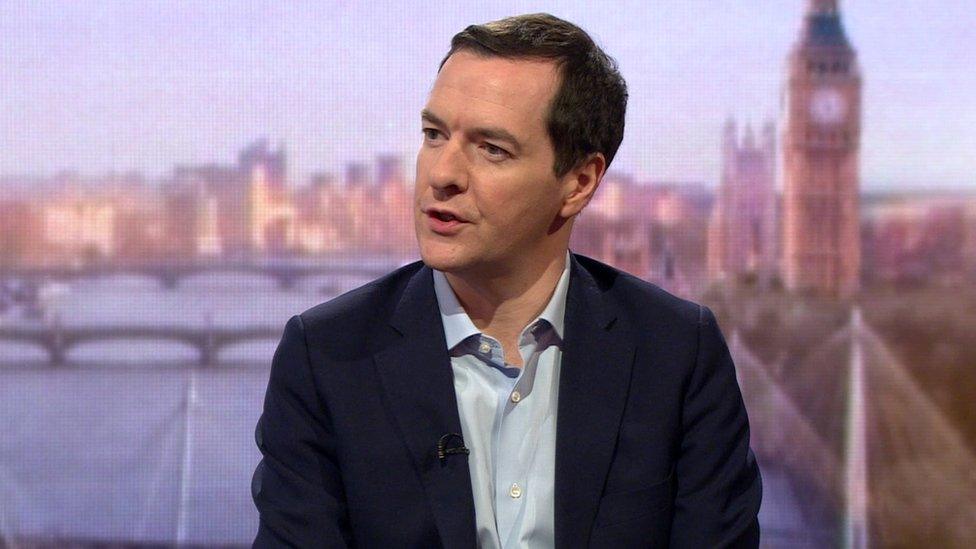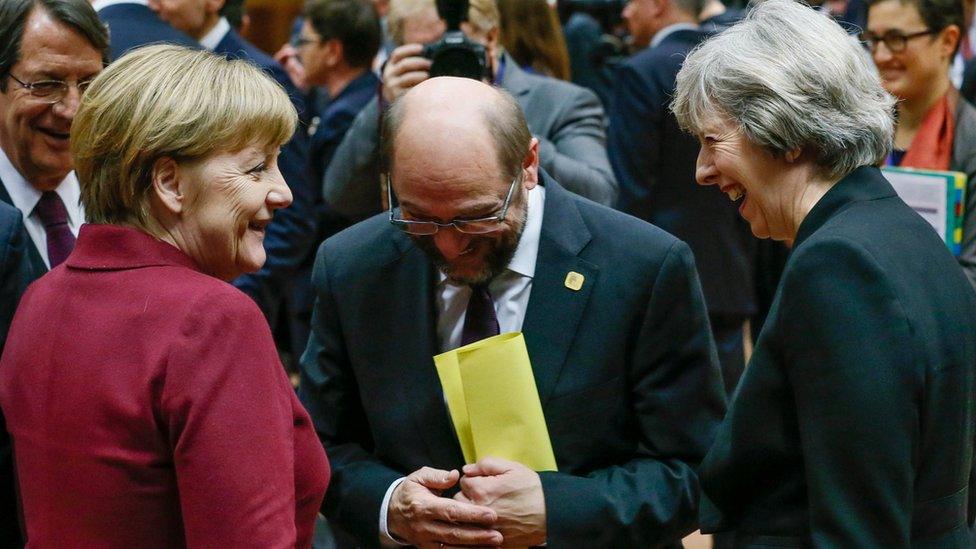Theresa May: Brexit plans to be laid out in new year
- Published
Theresa May declined to give a "yes or no" answer on whether parliament would have a vote on a final Brexit deal
Theresa May has promised to set out her proposals for a "truly global Britain" in speech on Brexit in the new year.
The prime minister also told MPs that Parliament would get a "proper opportunity" to discuss her plans before negotiations with the EU start.
She "fully" expected that these talks would begin by the end of next March.
And, in testy exchanges with Labour MP Yvette Cooper, Mrs May defended the inclusion of overseas students in net migration figures.
The prime minister has pledged to trigger Article 50 of the Lisbon Treaty, getting leaving talks with the EU under way, by the end of March. These can take up to two years, unless an agreement is reached to prolong the process.
Appearing before the Liaison Committee - made up of chairmen and women of Commons select committees - she said: "We will meet that timetable and don't intend to extend the Article 50 process.
"We've also said we will publish more information about our approach before Article 50 is triggered. I will be making a speech early in the new year setting out more about our approach and about the opportunity I think we have as a country to use this process to forge a truly global Britain that embraces and trades with countries across the world."
She added: "It's important that we understand the wider meaning of the referendum result and respond accordingly. It wasn't just a vote to leave the EU, but to change the way the country works and the people for whom it works forever."
Mrs May added: "I fully expect us to be able to operate on the timetable that has been set out in the treaty, obviously as we go into the negotiations that's a matter for the negotiations."
The Great Repeal Bill, which will transpose EU law into domestic law, would be in place when the UK left, she said, but she added: "When people voted they wanted us to be able to take control of our laws - when we are no longer a member of the European Union, laws will be determined here in the United Kingdom and will be subject to British courts."
The prime minister was repeatedly questioned on the future of immigration policy by Mrs Cooper, the Commons Home Affairs Committee chairwoman.
She asked whether it was "time to remove" foreign students from figures, but Mrs May responded that this was "in the international definition of migration figures".
Conservative MP Andrew Tyrie, chairman of the Liaison Committee, told Mrs May: "Most people think that students are a huge success story for this country - a great British export. Don't you think it might be a good idea to reconsider that decision?"
The PM replied: "We use the international system of definition. It's perfectly simple."
- Published18 December 2016

- Published16 December 2016
